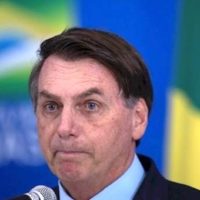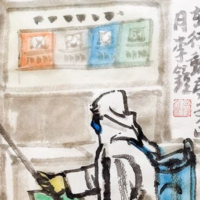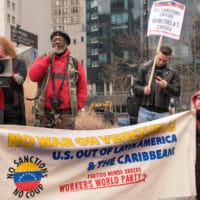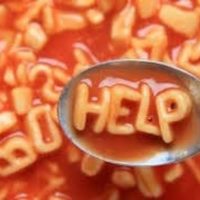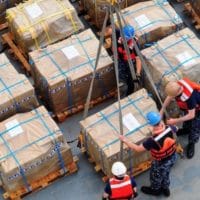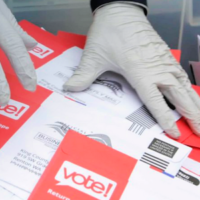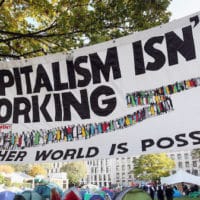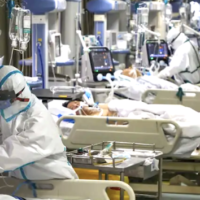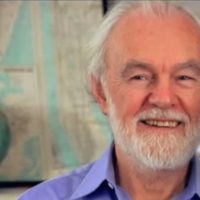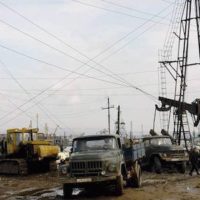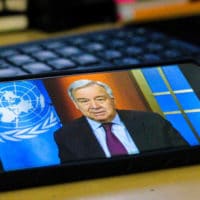-
Democracy in Brazil would not be normal, Bolsonaro threatens
The far-right president hints that a regime more authoritarian than Chile’s Augusto Pinochet dictatorship could be the “price to pay” due to the “chaos” that the “small flu” triggers.
-
We won’t go back to normal, because normal was the problem
It is hard to remember that just a few weeks ago, the planet was in motion. There were protests in Delhi (India) and Quito (Ecuador), eruptions against the old order that ranged from anger at the economic policies of austerity and neoliberalism to frustration with the cultural policies of misogyny and racism. Ingeniously, in Santiago (Chile), during its wave after wave of protests, someone projected a powerful slogan onto the side of a building: ‘we won’t go back to normal, because normal was the problem’.
-
As the World tackles the COVID-19 pandemic, the U.S. raises the pressure on Venezuela
In a press conference on March 26, it was almost comical how little evidence the U.S. Department of Justice provided when it accused Venezuela’s President Nicolás Maduro and several of the leaders of his government of narco-trafficking. The U.S. offered $15 million for the arrest of Maduro and $10 million for the others. Maduro, U.S. Attorney Geoffrey Berman said dramatically, “very deliberately deployed cocaine as a weapon.” Evidence for this? Not presented at all.
-
Venezuela: U.S. blocks flights to repatriate citizens amid COVID-19
Arreaza reiterated that the request for humanitarian flights responds to a request made by Venezuelans themselves to the Venezuelan Attention System in the United States.
-
The Federal Reserve’s Coronavirus crisis actions, explained (Part 1)
The Federal Reserve has taken an extraordinary amount of actions over the past two weeks (most of which have happened over the course of 8 days from March 15th to March 23rd) to calm financial markets and sustain the flow of credit to households and businesses to respond to the coming Coronavirus-induced depression.
-
How market reforms made the NHS vulnerable to pandemics
A 2014 report warned that reforms to the NHS would make it vulnerable to pandemics – by making staff redundant, undermining public health and defining spare capacity as waste. It was ignored.
-
Donald Trump says America’s ventilator shortage was “unforeseen.” Nothing could be further from the truth
IN RECENT DAYS, President Donald Trump has repeatedly defended his administration against the suggestion that the government is failing to secure enough ventilators – medical devices that help Covid-19 patients breathe and can save the lives of those suffering serious respiratory distress.
-
What the government needs to do next
Tax rebates, tax cuts and business bailouts will not solve this crisis. Here’s what’s needed.
-
Jeff Bezos, World’s richest man, wants your donations to help Amazon employees
A man worth over $100 billion, who makes, on average, $230,000 per minute calling on the public to help his own impoverished employees was not met well by many.
-
Can the U.S. pull off a November Election? Journalists play a critical role
It might be easy to forget, given the crisis enveloping the world at the moment, that the United States is scheduled to hold a very important election in November.
-
Unemployment pandemic
Capitalist crises are neither predictable nor do they stem from a single cause. Instead, at least as I see it, the possibility of a crisis is always there but the causes and triggers are all historical and therefore multiple and varied.
-
With the public distracted, Interior Department moves full speed ahead on oil and gas leases
We are currently in a state of national emergency thanks in no small part to the Trump administration’s muzzling of public health experts and slow response to the COVID-19 pandemic.
-
COVID-19: THE TRUTH – Gov’t docs emerge to show how they’ve failed us all
In October 2016 the UK government ran a national pandemic flu exercise. It was codenamed Exercise Cygnus. The report of its findings was not made publicly available, as part of the general antipathy towards the NHS in general by the Conservative party. But the then chief medical officer Sally Davies commented on what she had learnt from it in December 2016. The public will now pay with their lives for deliberate government inaction and total disregard towards their primary function – to protect us all.
-
Anti-capitalist politics in the time of COVID-19
When trying to interpret, understand and analyze the daily flow of news, I tend to locate what is happening against the background of two distinctive but intersecting models of how capitalism works.
-
The COVID-19 debt deluge
How long the COVID-19 crisis will last, and what its immediate economic costs will be, is anyone’s guess. But even if the pandemic’s economic impact is contained, it may have already set the stage for a debt meltdown long in the making, starting in many of the Asian emerging and developing economies on the front lines of the outbreak.
-
Late-stage imperial omni-crisis: Death by virus and internal contradictions
“The system…is failing. Let’s admit it,” said Dr. Anthony Fauci, director of the National Institute of Allergy and Infectious Diseases, on March 14 at a White House briefing.
-
The Cocoon Sessions Episode 2: People aren’t the problem, capitalism is
Snuggle in with us for another Cocoon Session where we give you a really cool and easy trick to hack your anxiety, talk about the way the quarantine is changing the world good and bad, and finally Caitlin has her proof that humans are not the problem after all.
-
Fighting COVID-19 in Cuba, China and the United States
The pandemic has effectively provided a laboratory-like demonstration that people do better when states can plan ahead, apply national resources unequivocally to the public good, put science in the service of the people, and practice international solidarity. These are characteristics of socialist societies.
-
UN Chief warns of coming recession for the Planet
Bumping elbows at the United Nations.
-
The capitalist pandemic, Coronavirus and the economic crisis
The coronavirus pandemic is a serious public health problem and the human suffering caused by the spread of this virus will be enormous. If it massively affects countries of the Global South with very fragile public health systems that have been undermined by 40 years of neo-liberal policies, the death toll will be very high. We must not forget the critical situation of the Iranian population, victim of the blockade imposed by Washington, a blockade that includes medicines and medical equipment.

